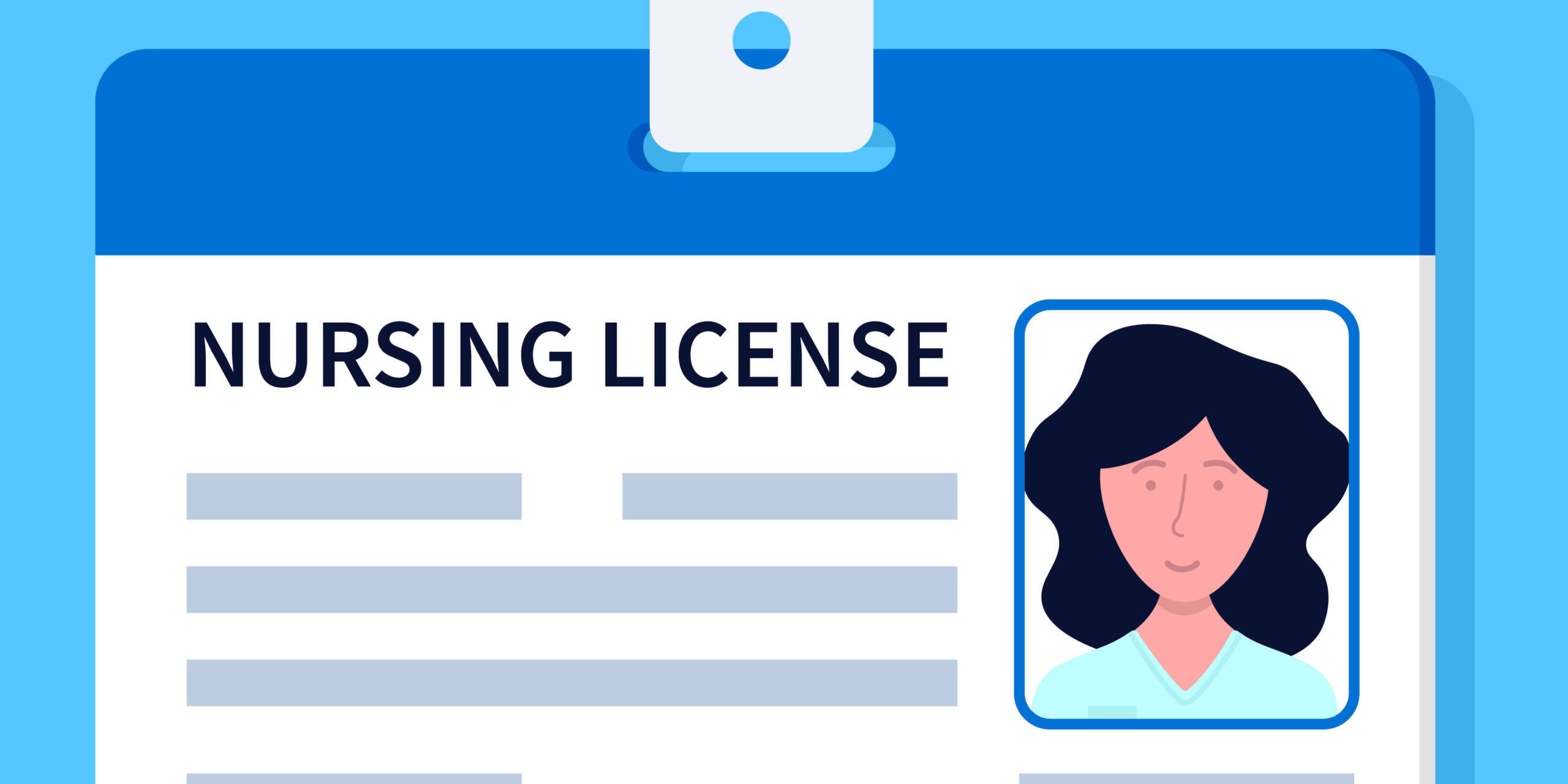What Is Nursing Licensure?
Nursing licensure is a critical aspect of a nurse’s professional journey, representing a formal recognition of their qualifications and competence to practice nursing in a specific jurisdiction.
It is a legal requirement in most states to ensure that nurses meet established standards of education, training and ethical conduct to provide safe and effective patient care.
What Does a Nursing License Entail?
A nursing license grants individuals the legal authority to practice nursing within a defined scope of practice. It signifies that the nurse has met the minimum requirements set forth by the licensing authority.
To qualify to sit for the formal licensing exam, test takers must have completed an appropriate accredited nursing program. They only gain certification after passing a standardized licensure examination (such as the NCLEX-RN in the United States) and meeting any additional state requirements for employment as a nurse.
Importance of Nursing Licensure
- Ensuring Competency: Licensure ensures that nurses possess the necessary knowledge, skills and judgment to provide competent and safe care to patients.
- Protecting Public Health: By regulating the practice of nursing, licensure protects the public from unqualified individuals who may pose a risk to patient safety.
- Legal Requirement: In most jurisdictions, holding a valid nursing license is a legal requirement for practicing nursing. Working without a license can result in legal consequences, including fines, sanctions or criminal charges. If a patient suffers injuries or negative health consequences at the hands of a nurse who doesn’t possess the proper certifications, the nurse and their employer could face liability and expensive malpractice claims.
- Professional Recognition: Licensure signifies professional recognition and credibility, demonstrating that the nurse has met rigorous standards of education and competency.
- Facilitating Mobility: National nursing licensure allows nurses to practice across state lines, enabling greater mobility and flexibility in their careers.
Obtaining and Maintaining a Nursing License
Obtaining and maintaining a nursing license is a multifaceted process that requires dedication, diligence and ongoing commitment to professional development. While the specific requirements may vary by jurisdiction, the overarching goal is to ensure that nurses possess the knowledge, skills and ethical standards necessary to provide safe and effective patient care.
In addition to meeting initial licensure requirements, nurses must also fulfill ongoing obligations to maintain their licensure status. This often involves completing continuing education credits, renewing the license at regular intervals and adhering to the nursing code of ethics. By staying abreast of changes in healthcare regulations and best practices, nurses can uphold the highest standards of care and demonstrate their ongoing competency as healthcare professionals.
Requirements for License
Graduation from an Accredited Nursing Program
Graduating from an accredited nursing program is the foundational first step on the path to obtaining a nursing license. These programs, offered by colleges, universities and vocational schools like St. Louis College of Health Careers, provide aspiring nurses with the essential knowledge, skills and clinical training needed to excel in the field.
Nursing programs must meet rigorous standards set by accrediting bodies to ensure they are providing the skills and modern clinical experience that healthcare employers are looking for in new nurses. Education at an accredited institution indicates graduates are well-prepared to enter the workforce and provide safe, competent patient care.
Successful Completion of a Licensure Examination
One of the most critical requirements for obtaining a nursing license is passing a licensure examination, such as the NCLEX-RN (National Council Licensure Examination for Registered Nurses) or NCLEX-PN (for Practical Nurses).
These examinations assess the candidate’s understanding of nursing theory, clinical skills and ability to apply critical thinking in various patient care scenarios. Passing the licensure exam demonstrates that the nurse possesses the necessary knowledge and competence to practice safely within their scope of practice.
Criminal Background Check
Many jurisdictions require nursing license applicants undergo a criminal background check as part of the licensure process. This check helps ensure the safety of patients by identifying any past criminal convictions or disciplinary actions that may raise concerns about the applicant’s suitability for licensure. Depending on the jurisdiction, certain criminal offenses may disqualify an individual from obtaining a nursing license, while others may require further review.
Compliance With Additional State Requirements
Nursing license applicants may need to comply with additional state requirements specific to the area where they’re applying for nursing positions. You should look up the requirements with the division of professional registration for the state in which you’re seeking employment, such as the Missouri Division of Profession Registration. The Board of Nursing in Missouri defines the specific requirements for licensure requirements in the state.
Get an Accredited Education That Will Enable You to Sit for the NCLEX Exams
When considering different vocational schools that offer nursing diplomas or degree programs, it’s important to confirm accreditations prior to enrollment. Only the successful completion of a program offered by an accredited institution will allow you to sit for the relevant NCLEX exam.
With our dedicated faculty and comprehensive curriculum, you’ll gain the knowledge and skills needed to excel in the dynamic field of healthcare. Enroll today here on our website or get more information by calling us at 866-529-2070.
